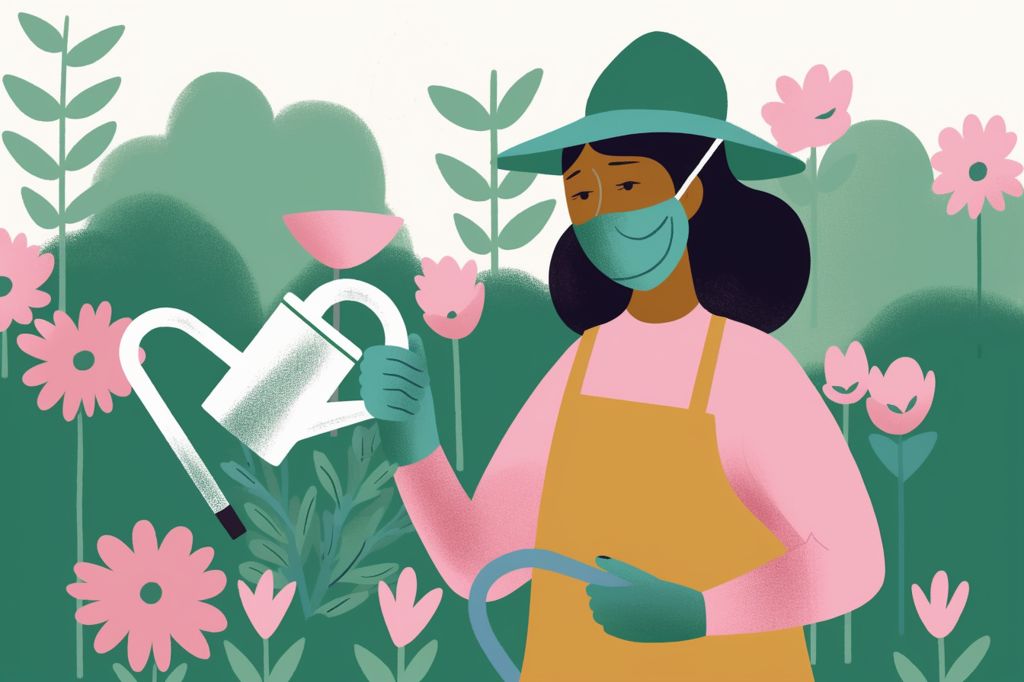As the trees bloom and the birds chirp, many people welcome the arrival of spring with open arms. However, for those who suffer from allergies, the season can be a mixed blessing. The scent of fresh blossoms and the warmth of the sun can quickly turn into a barrage of sneezes, itchy eyes, and a runny nose.
The Prevalence of Hay Fever
Hay fever, also known as allergic rhinitis, is a common condition that affects up to 42% of the population. It is caused by the immune system’s response to allergens such as pollen, dust mites, or animal dander. The body mistakes these allergens as harmful and produces an antibody called immunoglobulin E or IgE, which attaches to immune cells called mast cells, resulting in inflammation and the symptoms of hay fever.
The Complex Factors That Influence Hay Fever
While hay fever can be a frustrating and sometimes debilitating condition, its development is influenced by multiple factors. Genetics plays a significant role in determining a person’s susceptibility to hay fever. Specific genes involved in immune system regulation and response have been linked to an increased risk of developing hay fever. Furthermore, research has shown that hay fever is highly heritable, with the likelihood of developing the condition ranging from 33% to 91% for those with a family history of allergies.
Environmental factors also play a crucial role in the development of hay fever. Exposure to air pollution, tobacco smoke, and other irritants can damage the respiratory system, making it easier for allergens to enter the body and trigger an allergic response. Additionally, some people may be exposed to allergens more frequently or in larger amounts than others, making them more susceptible to developing hay fever.
The Changing Face of Hay Fever
As our world changes, so too does the nature of hay fever. Climate change is altering the quantity and composition of pollen that plants release, as well as the timing, which means pollen seasons are starting earlier, lasting longer, and becoming more intense. Furthermore, with the rise of industrialization and urbanization, air pollution levels have been steadily increasing, exacerbating the symptoms of hay fever for many people.
Coping Strategies for Hay Fever
While there is no cure for hay fever, there are several ways to manage its symptoms. Avoiding allergens that trigger hay fever symptoms is the first step. This may mean staying indoors during high pollen counts or wearing a mask if working outdoors. Air filters, particularly high-efficiency particulate air (HEPA) filters, can help remove allergens from the air. Keeping windows closed during high pollen counts will also prevent allergens from entering your home. Antihistamines are medications that help reduce hay fever symptoms by blocking the effects of histamine. Immunotherapy, also known as allergy shots, can also help reduce hay fever symptoms by desensitizing the immune system to specific allergens over time. Managing stress through meditation, yoga, or deep-breathing exercises can also help alleviate hay fever symptoms.
Reflections on Hay Fever
As someone who has suffered from hay fever for most of my life, I know firsthand how frustrating and sometimes isolating it can be. However, I also recognize the beauty of springtime and its promise of renewal and growth. Despite the challenges that hay fever presents, I am grateful for the joys of this season, and I am continually amazed by the resilience and adaptability of the human body in the face of adversity. Perhaps, in some small way, my struggle with hay fever has taught me to appreciate the fleeting moments of beauty and to savor the sweetness of life’s simple pleasures.








